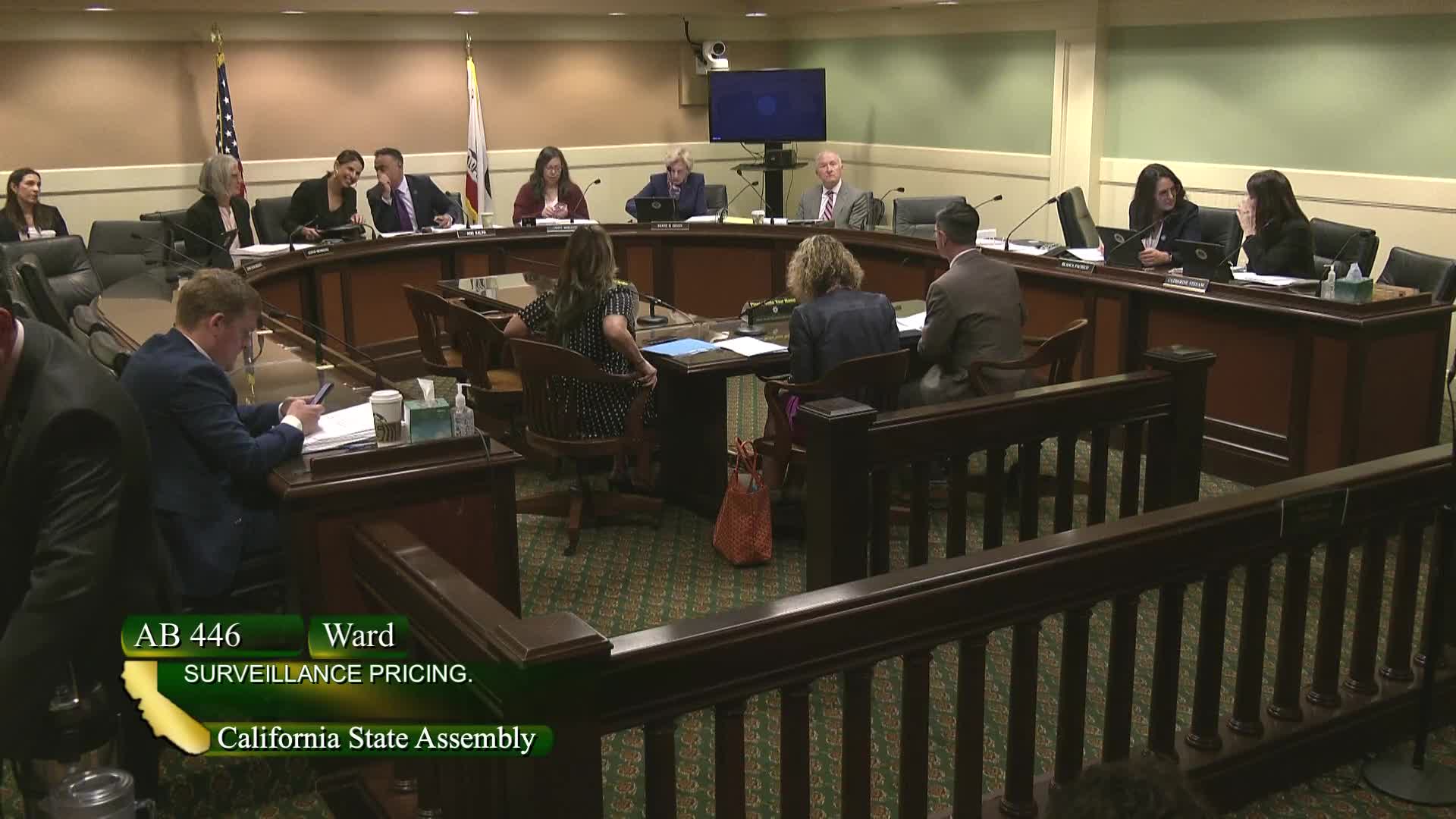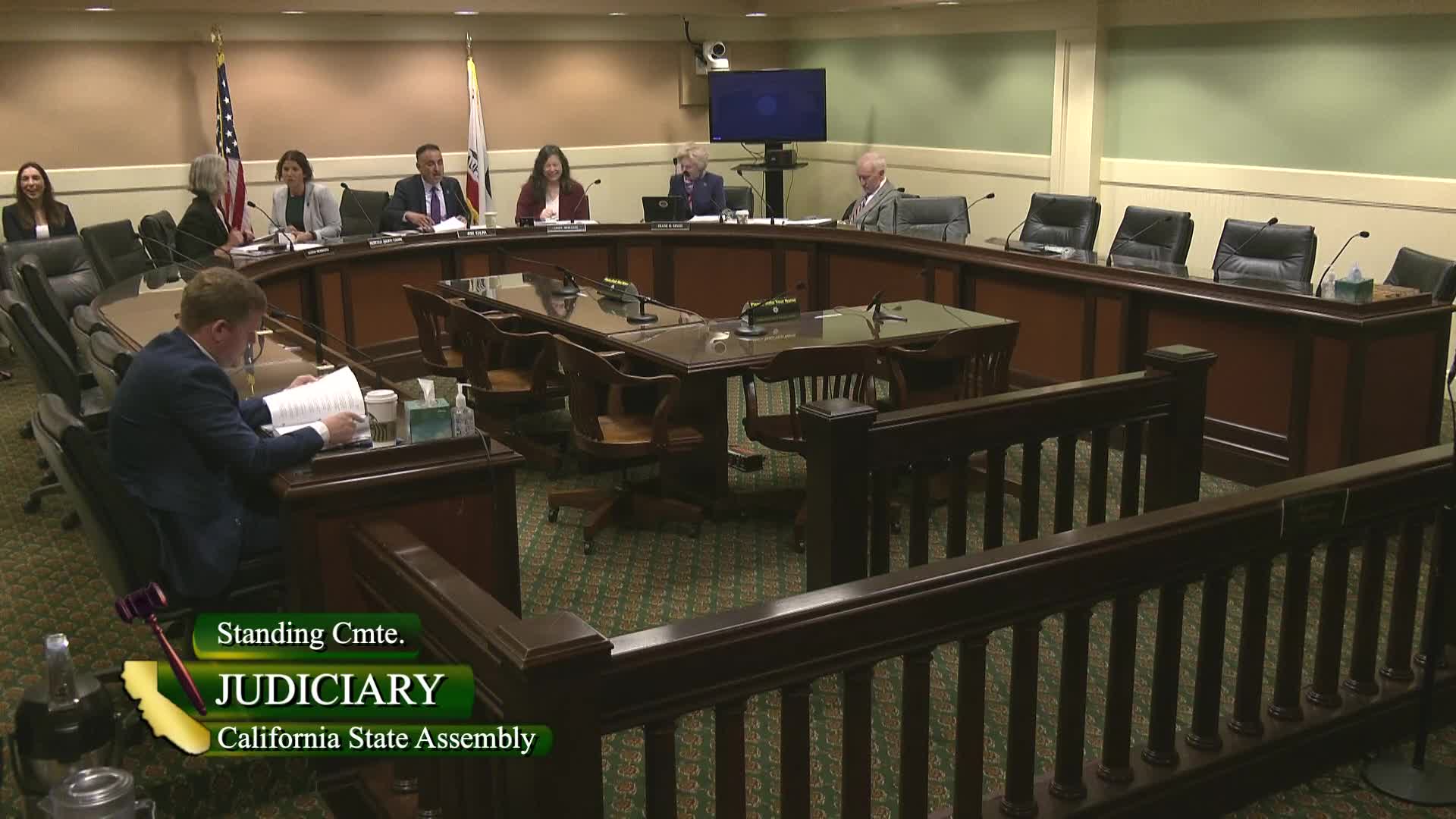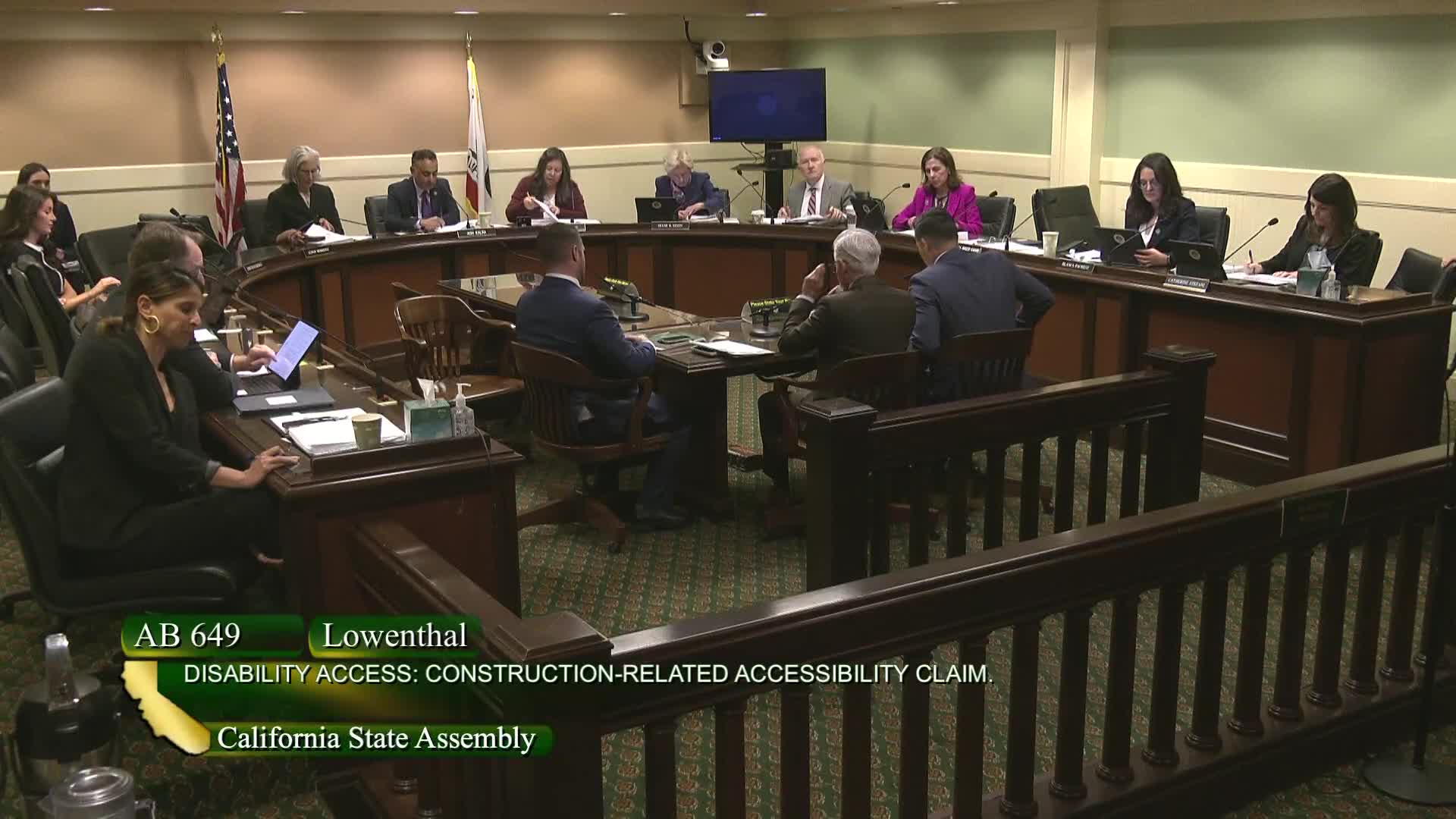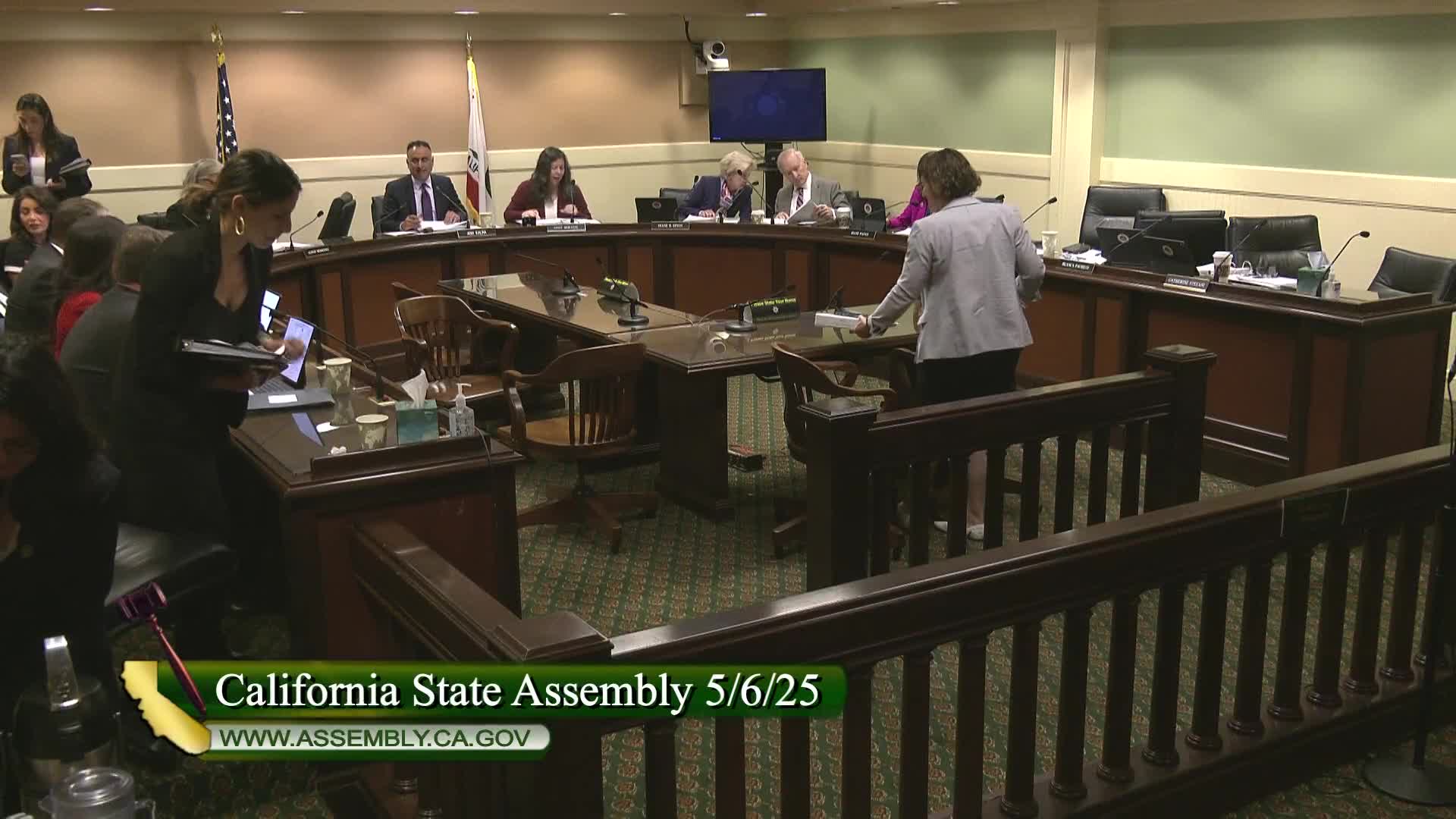Article not found
This article is no longer available. But don't worry—we've gathered other articles that discuss the same topic.

Assembly committee advances bill to ban 'surveillance pricing' after lengthy debate

Votes at a glance: Assembly Judiciary Committee actions and outcomes

Committee approves limited 'right to cure' for businesses that obtain CASp inspections under AB 649

